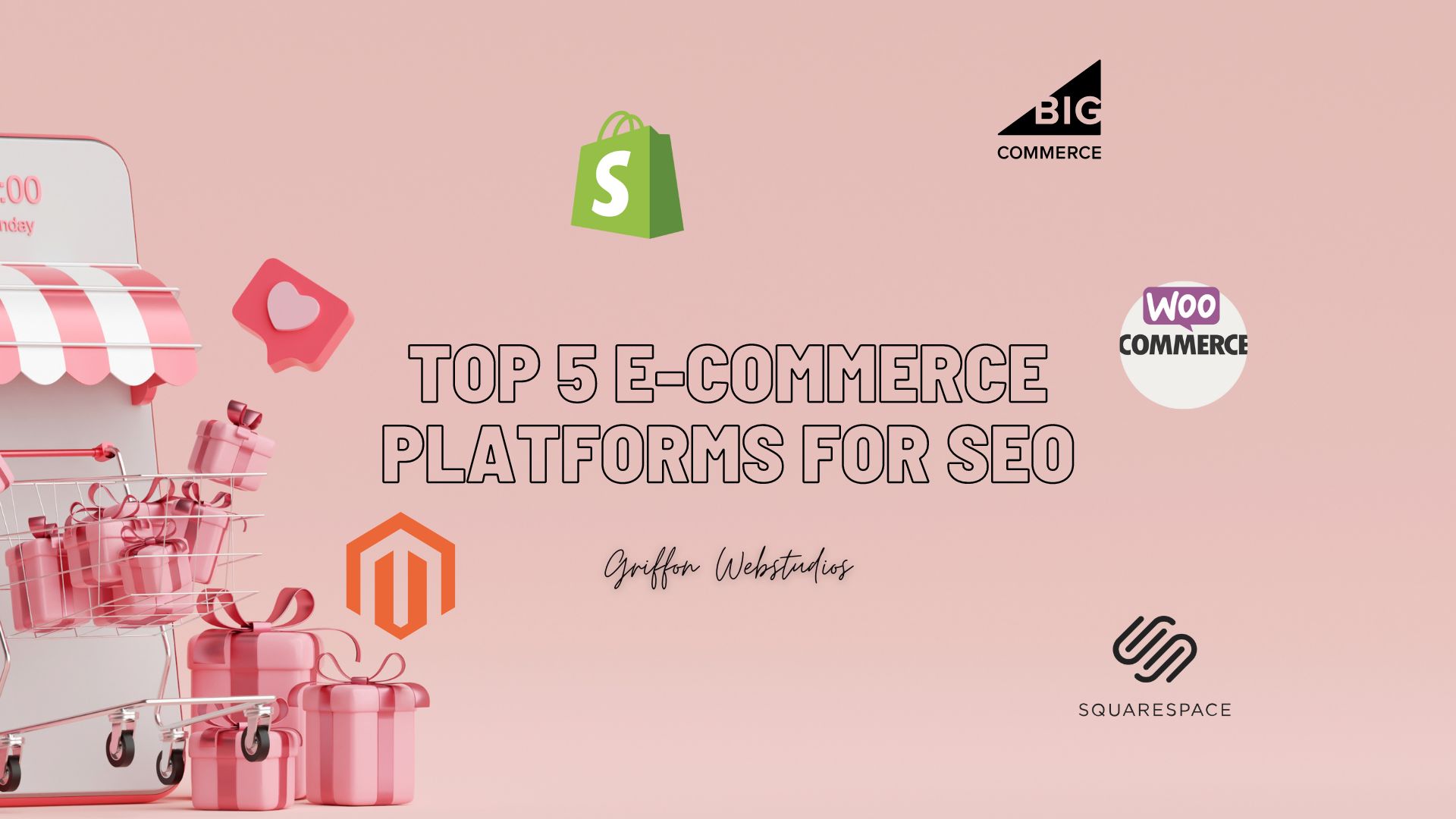Top e-commerce systems make launching a profitable online business simple and inexpensive. Of course, with so many outstanding solutions available, selecting the best plan for your needs may be difficult. To assist, we have compiled a list of the 5 finest e-commerce platforms accessible in 2023. These solutions provide all the functionality you need to swiftly establish your website, increase traffic, and close more transactions.
1. WooCommerce
Opensource, customizable for every business need.
WooCommerce is a popular open-source e-commerce plugin for the WordPress platform. It allows you to easily create and manage an online store by adding e-commerce functionality to your existing WordPress website.
The cost of using WooCommerce primarily consists of the following:
Hosting: WooCommerce requires a hosting account to run your website, which typically costs between $5 and $30 per month.
WordPress theme: You’ll need a WordPress theme to design your website, and there are many free and premium themes available. Prices for premium themes can range from $20 to $200 or more.
Plugins and extensions: WooCommerce is highly customizable and can be extended with a wide range of plugins and extensions. Prices for plugins can range from free to several hundred dollars.
Payment gateway: You’ll need a payment gateway to process transactions, and there are many options available. Some popular payment gateways, such as PayPal and Stripe, charge transaction fees, while others have monthly fees.
Customization and development: If you need custom development work, such as customizing your theme or adding new features, you’ll need to hire a developer, which can add additional costs.
If all WooCommerce stores formed a country, its revenue would be greater than 35% of the world’s countries
2. Shopify
Integrations for dropshipping, omnichannel selling, and built-in selling features. One of the most popular eCommerce platforms that are SEO friendly.
Shopify is a leading e-commerce platform that enables businesses of all sizes to create and manage an online store. With Shopify, you can easily create a professional-looking website and start selling products online, whether you have a physical store or not.
Shopify offers several pricing plans to meet the needs of different types of businesses. The following are the main Shopify pricing plans:
Basic Shopify: This plan costs $29 per month and includes the core features and tools needed to sell online, including a website builder, unlimited products, and a payment gateway.
Shopify: This plan costs $79 per month and includes more advanced features, such as shipping discounts and a professional report builder.
Advanced Shopify: This plan costs $299 per month and includes even more advanced features, such as advanced reporting and abandoned cart recovery.
Shopify Plus: This is a custom plan designed for large enterprises and is priced based on the specific needs of each business. It’s important to note that all Shopify plans include 24/7 support and access to the Shopify app store, where you can add additional functionality to your store.
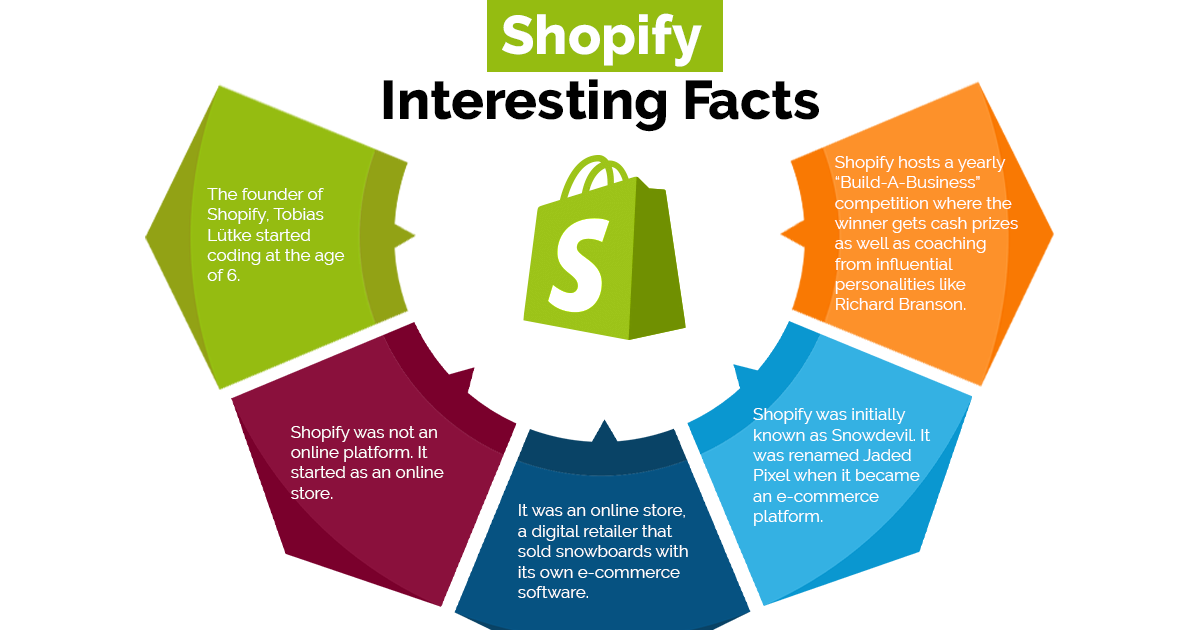
Additionally, Shopify charges a transaction fee on each sale, depending on the payment gateway used. To find the best plan for your business, consider your budget and the specific features and tools you need. You can also start with a lower-priced plan and upgrade as your business grows.
Over 4.4 million websites globally use Shopify as of 2023. Celebrities like Kylie Jenner, Adele, and David Beckham have implemented Shopify to establish their online stores.
3. BigCommerce
Ease of Use, Scalability, and integrated payment processing solutions.
BigCommerce is a cloud-based e-commerce platform that enables businesses of all sizes to create and manage an online store. It provides a range of features and tools to help you sell products online, including website-building tools, product management, payment processing, and shipping and order management.
BigCommerce offers several pricing plans to meet the needs of different types of businesses, including:
Standard: This plan costs $29.95 per month and includes core e-commerce features, such as unlimited products, a payment gateway, and basic reporting and analytics.
Plus: This plan costs $79.95 per month and includes advanced features, such as gift cards, professional reporting, and an abandoned cart saver.
Pro: This plan costs $299.95 per month and includes even more advanced features, such as custom SSL, real-time carrier shipping, and advanced reporting.
Enterprise: This is a custom plan designed for large businesses and is priced based on the specific needs of each business.
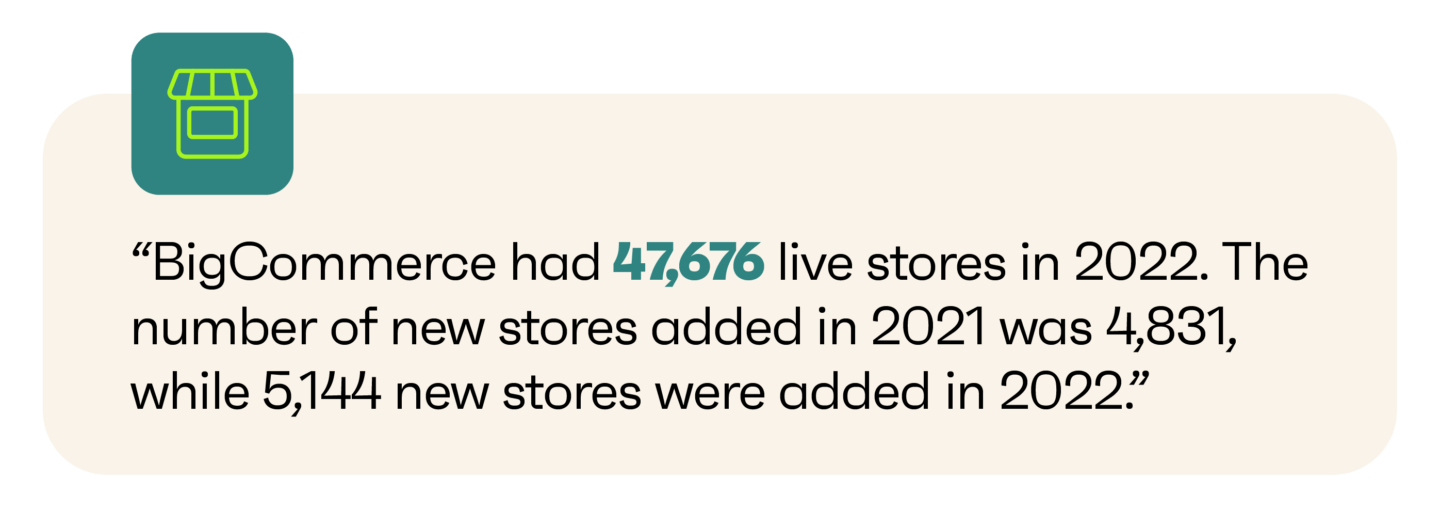
It’s important to note that BigCommerce charges a transaction fee on each sale, depending on the payment gateway used. This fee ranges from 0.5% to 2% of the sale, depending on the pricing plan. Additionally, some features, such as custom SSL certificates and premium themes, may incur additional fees. To find the best plan for your business, consider your budget and the specific features and tools you need. You can also start with a lower-priced plan and upgrade as your business grows.
BigCommerce when it comes to transaction fees charges 0% transaction fees with all its plans and has negotiated special rates with PayPal for credit cards.
4. Magento (Adobe Commerce)
Multi-Store backend Capabilities, Highly customizable, and has a huge library of extensions.
Magento is an open-source platform designed specifically for e-commerce websites and online stores. It comes with built-in SEO capabilities such as configurable meta tags and customizable URLs which makes it easy for businesses to optimize their webpages for SERPs without having to use additional tools or services from third parties.
Additionally, Magento also offers advanced reporting features so users can keep track of how well their website’s content is performing in terms of organic search traffic and conversions over time so they can make informed decisions about what changes need to be made in order to improve visibility further down the line if necessary.
Magento Open Source is a free, open-source platform that can be downloaded and installed on your own server. You’ll need to cover the cost of hosting, and there may be additional costs for extensions and custom development work.
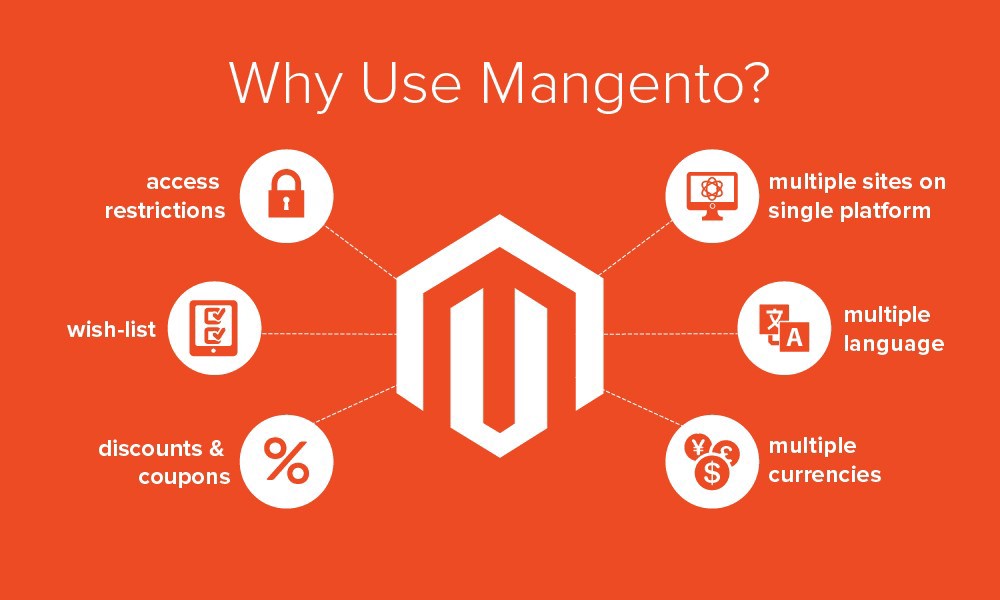
Magento Commerce is a paid platform that provides additional features, support, and scalability. The cost of Magento Commerce is based on a number of factors, including the size of your business, the number of products you sell, and the level of customization you require. Pricing for Magento Commerce starts at around $22,000 per year and can go up to several hundred thousand dollars per year for large, complex deployments.
It’s important to note that Magento Commerce pricing is flexible and can be customized to meet the needs of your business. Additionally, there are many third-party extensions and plugins available for Magento that can add additional functionality and increase the cost of using the platform. To find the best pricing option for your business, consider your budget, the specific features and tools you need, and the level of support and customization you require.
In 2018, Adobe acquired Magento for $1.68 billion. Magento is an open-source eCommerce platform and it is supported by a huge pool of more than 3,00,000 developers worldwide. The Magento marketplace is the world’s largest eCommerce marketplace for extensions.
5. Squarespace
No transaction costs, free domain and SSL certificate, and award-winning templates.
Squarespace is one of the top choices due to its appealing templates, many of which are free. While there is no free plan, the Business package starts at $23 per month (if paid annually). It includes the ability to sell an infinite amount of items, CSS and JavaScript modification, and a Google professional email account. It also offers a more affordable option that starts at $14 per month (paid annually), but it does not contain e-commerce functionality.
The Basic Commerce package, which allows you to have a point-of-sale system, costs $27 per month (paid annually) (POS). This plan is suitable for anyone who owns a physical store or sells at markets and fairs. E-commerce metrics and the option to tag your items in Instagram photos are also included.
The Advanced Commerce plan is $49 per month (if paid annually) and allows you to sell subscriptions as well as send automatic emails when a consumer abandons their basket without making a purchase.
It’s worth mentioning that there is a 3% transaction charge on sales unless you have one of the Commerce plans. These charges are in addition to the regular credit card costs imposed per sale on each plan.
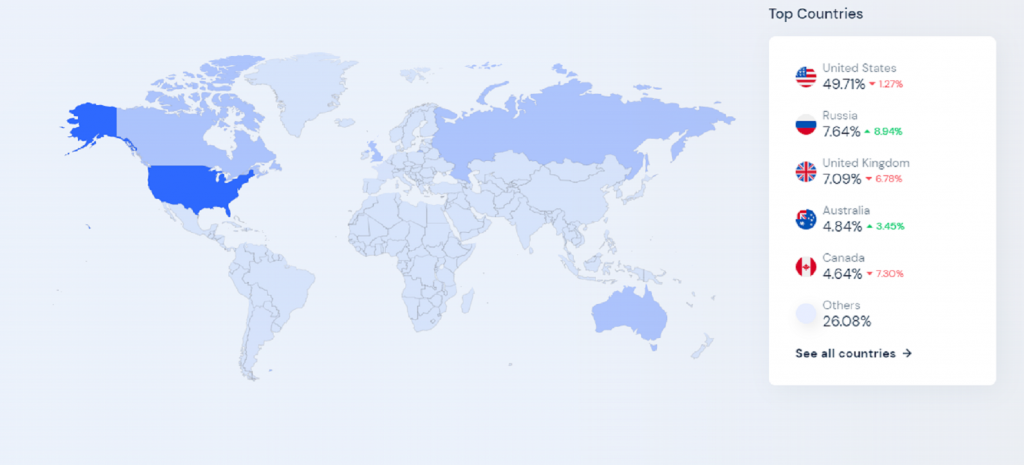
The top 5 e-commerce platforms discussed above all offer great solutions when it comes to optimizing your website’s content for higher rankings on SERPs like Google or Bing. From built-in tools like structured data markup support or customizable URLs – these five platforms provide everything necessary for businesses looking into improving their visibility without having any technical knowledge required at all.
Ultimately, using these platforms will ensure greater success when attempting to attract more customers through organic searches conducted through various search engines around the globe.
Squarespace is responsible for 1.7% of all websites on the Internet

